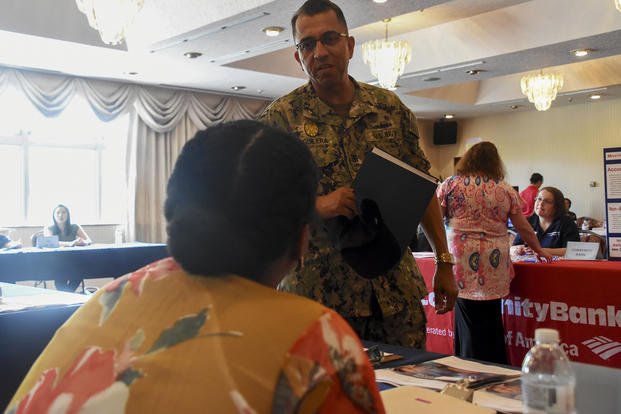When you go into a job interview and you are being asked questions by someone who has never served in the military, it's your responsibility to make the interviewer feel comfortable asking you questions about your overseas experiences.
For most of us, our experiences in Iraq and Afghanistan truly define who we are today as leaders and professionals. You have to explain how the experiences acquired overseas will help you be the best possible employee if you want to get hired.
You can only do this by explaining your overseas experiences in a way that the interviewer is comfortable understanding. In nearly every interview that you go on, the interviewer is going to ask you an open-ended question about you or your military experiences, such as:
- "Tell me about yourself."
- "Tell me about your experiences in the Army."
- "Give me an example of a time when you led a team."
This is your opportunity to explain what you did in the military on your terms and to open the conversation for the interviewer to better understand your skills and experiences. If you don't, and you leave the interview without giving the hiring manager a clear idea of what you're capable of, you won't be hired.
For example, let's say you deployed to Afghanistan as an infantry team leader and were in charge of three other soldiers. You could say, "I was an infantry fire team leader in charge of three other soldiers in Afghanistan. I led them on over 100 combat patrols that contributed to the neutralization of an estimated 200-man enemy force in Kunar Province. As a result, attacks in our province were reduced by over 40% during our time there."
What follow-up question is the interviewer going to ask you now about your experiences in the military? After an answer like that, they will move on without really understanding what you did or how you performed.
On the other hand, you can say something like this to make the interviewer more comfortable asking follow-up questions: "I was directly responsible for leading three soldiers during a year-long deployment to Afghanistan. I was responsible for every aspect of the soldiers' lives, including their training, equipment, professional development and safety. On a day-to-day basis, we worked with the Afghan police to conduct security operations in a mid-sized city, helping to bring safety to a population of over 100,000 people. We helped train the Afghan police, we provided security and transportation to medical doctors to remote villages and also provided additional security measures for government agencies so they could implement work programs to unemployed citizens."
Do you see the difference? There are many follow-up questions that the interviewer can derive from this response and, more importantly, feel more comfortable doing so.
Focus your stories and experiences on the positive aspects of your deployments. It will make the interviewer feel more comfortable asking follow-up questions and give them a better understanding of what you are capable of, which gives you a better chance of being hired.
Michael Abrams is an Afghanistan veteran and founder of FourBlock, a veteran career development program based in New York. He is the author of "Business Networking for Veterans" as well as an adjunct professor at Fordham University.
Want to Know More About the Military?
Be sure to get the latest news about the U.S. military, as well as critical info about how to join and all the benefits of service. Subscribe to Military.com and receive customized updates delivered straight to your inbox.











